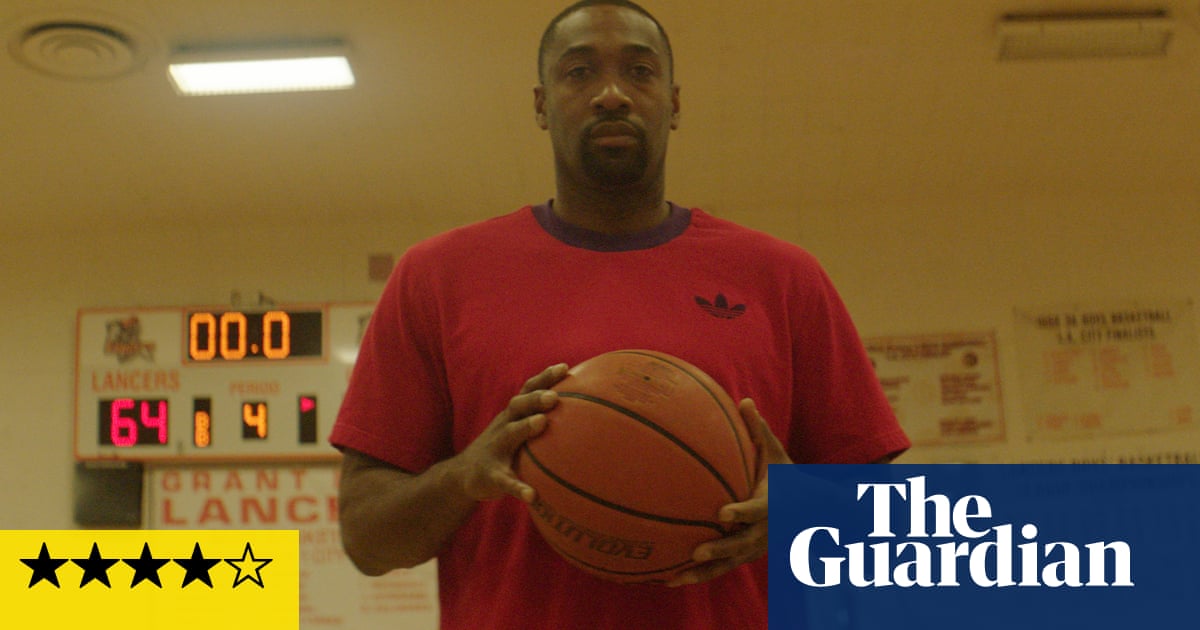Elite sport has millions of stories about kids who didn’t quite make it, but the bigger tragedy is the young adult who gets to the big leagues then throws it all away, because they can’t cope with the life that success brings. It is peculiarly upsetting to watch from afar as a rare talent is undone by a personality flaw that has nothing to do with the game itself: this lad can do the difficult bit and get the ball in the net, but he can’t withstand the pressure of the media’s gaze, or the disappointment of sometimes not being picked? Can’t someone please help him?
The reliable US documentary strand Untold has found numerous variations on this sad old story over the years, and it’s turned up a devastating one in Shooting Guards, which tracks the parallel lives of basketball pros Gilbert Arenas and Javaris Crittenton. The film starts with Crittenton emerging from a 10-year stint in prison.
We flip back to the two men’s childhoods, with Arenas growing up in the relaxed San Fernando Valley without his mother, while Crittenton is raised in “the hood” in Atlanta without his father or any male mentors. Both excel at basketball in high school and college before suffering minor setbacks in the NBA draft, the annual ceremony where professional teams take turns to recruit a college player for next season’s rosters. Arenas shines in the pre-draft showcase games, but then jokes to reporters that he wants to use his imminent star status to become “an international pimp”, a faux pas he thinks is the reason he ends up at the Golden State Warriors, not a more glamorous team. Crittenton desperately wants to play for the Atlanta Hawks so he won’t have to leave his home town, but is overlooked by them and goes to the Los Angeles Lakers.
Neither player enjoys their first posting, with Crittenton becoming so homesick, isolated and depressed while stuck on the fringes of the Lakers team that he joins notorious LA street gang the Crips, mainly for the company. Both then move to the Washington Wizards, where Arenas is established as the team prankster by the time the nervous, defensive Crittenton arrives. When Crittenton wades into a minor argument about borrowed money on a flight home from an away fixture, Arenas spies a chance for a wind-up. This leads to the incident that will define their lives.
Shooting Guards – with eerie convenience, “shooting guard” is the name of the basketball position that both men play – is all the more affecting for underlining just how trivial and silly the events of December 2009 are. Arenas is ruthless when he can get a rise out of a teammate, and eventually he goads Crittenton into threatening to shoot him. At the next training session, Arenas lays three guns from his own collection on Crittenton’s chair as a gag, only to find that Crittenton has brought in a gun of his own. But apart from Crittenton alarming his teammates by throwing one of Arenas’s firearms across the room – it doesn’t go off – that’s it. Shots are not fired. It is no more than two boys being stupid.
But the story gets out, with respected national media outlets adding entirely imaginary details to their versions. These young Black role models have, it is gravely announced, let everyone down. It is Arenas who exacerbates the controversy by aiming a finger-gun gesture at his teammates during a subsequent match, yet he and Crittenton are given the same draconian ban of 50 games. At the end of the suspension, Arenas returns, but the less-important player, Crittenton, is let go by the Wizards and is not picked up by any other team. His NBA dream is over.
Spiralling, Crittenton returns to Atlanta, where his visible wealth makes him a target. Having been robbed at gunpoint, he attempts to take revenge on the perpetrator some weeks later but accidentally shoots and kills an innocent bystander, 22-year-old mother of four Julian Jones, instead. In 2015, Crittenton pleads guilty to manslaughter.
The film is clear that the victims who matter most here are Jones and her family: director Walter Thompson-Hernández includes an interview with the young woman’s mother, talking of how much she will always be missed. But it is impossible not to also feel sympathy for the haunted Crittenton, who was never equipped to deal with his own talent; or indeed Arenas, whose achievements in the NBA are now tainted with regret because he took a joke too far. Untold: Shooting Guards sensitively examines the ruthless cruelties of top-level sport, and a society where some lonely, angry young men seem born to lose – even if they really should be winners.
Untold: Shooting Guards is on Netflix now
